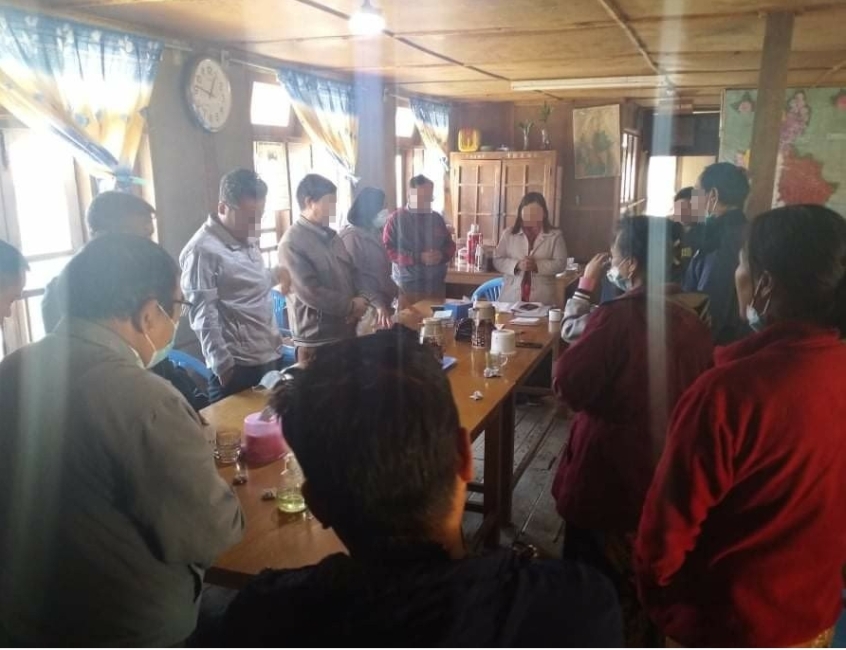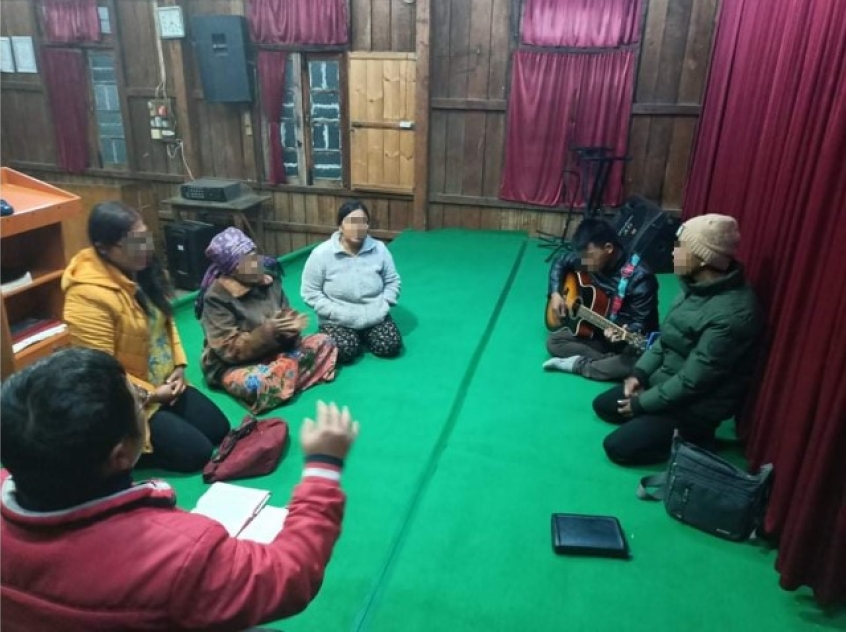
Pastor Chit* quickly realised that he and his small church were not safe anymore following the February coup. The military junta that had detained Myanmar's political leadership was now raiding churches, offices, cafes, residential buildings. They were hunting down protesters and shooting them.
Soon the pastor and 18 families from his church decided that the jungle was a safer place and moved them all to hide in the wild. They dug the ground, made a hole and are now staying there most of the time. Since the price of food has doubled following the coup, Pastor Chit and his community cannot afford to buy rice, so they forage roots and leaves from the jungle.
One threat they face is being forcibly conscripted into the army by the junta. One pastor in a remote village told Open Doors' partner Lwin*: "Last week, the village chief was asked to recruit 30 men for the military. Now the Christians, including the pastor, are hiding in the forest."
According to Lwin, people are frustrated, hopeless and under a lot of stress as there is no sign of a resolution to the situation.
With the nation's internet shut down, communications from Myanmar have been few and far between. However, Open Doors' partners in Myanmar have been able to share the current plight that many of Myanmar's 4.4 million Christians are facing.
Min Naing*, a Christian from the capital Yangon, told Open Doors: "Every day I hear the sound of gunshots and grenades near my house. Most homes do not turn on their lights after 8pm and nobody makes any noise. We stay indoors during the day too. We cannot go out except for shopping for groceries and taking out the rubbish. I live in the middle of Yangon without security."
Christians faced serious persecution in Myanmar and many fear they could be targeted during the current conflict. Even before the coup, the country was embroiled in what is currently the longest running civil war anywhere in the world. It began immediately after the country gained independence from Great Britain in 1948. The central government had tried to impose its control over regions, which had been promised limited autonomy. Armed ethnic groups from these regions have been fighting for the right to self-determination.
The civil war affects, among others, the predominantly Christian communities of Chin, Kachin and Karen. Christians are vulnerable to persecution by both insurgent groups and the army. Fighting there continues, and more than 100,000 people - mostly Christian - are living in internally displaced persons' camps.
Most of them have been there for years without food and medical care. Fighting continues in neighbouring Shan State as well, which has a large Christian minority. Thus, the February coup only added to the existing tension for Christians.

Some of them decided they needed to speak out and joined the protesters on the streets. Myra,* a pastor from Central Myanmar did so every day with other members of the community when the protests initially started. "I could not sit still when our people were fighting and protesting," she told Open Doors. "I decided to go out and protest. Some other pastors chose to stay in the church and observe fasting and prayer. We want the best for our country."
Pastor Myra had to stop protesting when it became too dangerous; military officers had invaded their area. Her church cannot open, however, she gets together with some of her church members for prayer and Bible study.
Pastor Joshua* from Central Myanmar also participated in the initial protests to support democracy. As the economic situation worsened, he then started distributing food packages to both Christians and non-Christians.
Another pastor, Zaw, donated 77 pounds of rice to the poor in his church's neighbourhood. He also helps and encourages other pastors from remote rural areas through phone calls.
From the capital to the remote jungle, Myanmar's pastors try to provide practical and spiritual support to all those who need food and words of encouragement as the church in Myanmar prays and hopes for a better future.
Myanmar is number 18 on the Open Doors' World Watch List, a ranking of 50 countries where it is most difficult to be a Christian.
*name changed for security reasons.
Zara Sarvarian works for Open Doors UK & Ireland, which is part of Open Doors International, a global NGO network which has supported and strengthened persecuted Christians for over 60 years and works in over 60 countries. In 2020, it raised £42 million to provide practical support to persecuted Christians such as food, medicines, trauma care, legal assistance, safe houses and schools, as well as spiritual support through Christian literature, training and resources. Open Doors UK & Ireland raised about £16 million.













